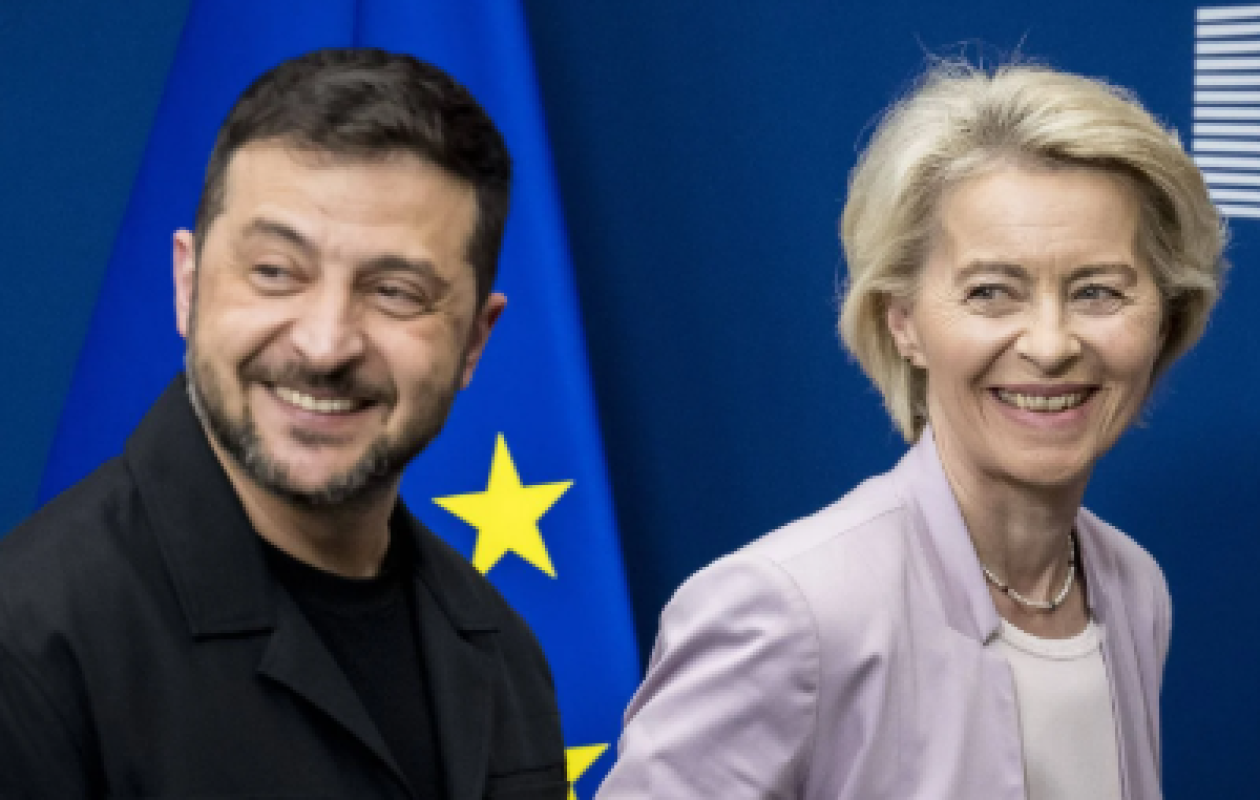
Guerre en Ukraine : Pour ne pas froisser Donald Trump, l’UE change de vocabulaire sur le conflit
By calling instead for a "stop to the massacres", Brussels is following the United States' lead by no longer talking about a "ceasefire".
"To misname an object is to add to the unhappiness of this world." European diplomacy seems to want to follow this recommendation from Albert Camus dating from 1944. And the objective is clear: not to offend Washington over Ukraine.
So no more calls for a ceasefire: for the past few days, the European Union has instead been urging Russia to "stop the massacres." This expression, which means almost the same thing, has the merit of not upsetting Donald Trump.
A change since the Trump-Putin summit
For months, Brussels has been pressing Moscow to accept a ceasefire in Ukraine, arguing that negotiations for a "just and lasting" peace cannot succeed while fighting continues. While this position remains unchanged, the European Union has slightly adapted its language on the issue since the summit between the American president and his Russian counterpart, Vladimir Putin. After this meeting in Alaska, Donald Trump, who had previously threatened Russia with sanctions if it did not agree to a ceasefire, called for "moving directly to a peace plan" to end a "horrible war."
"Our message is clear: stop the killings. Anything that can stop the killings is welcome," Commission spokesperson Arianna Podesta insisted on Tuesday. Asked Sunday whether it was necessary to call for a ceasefire in Ukraine, European Commission President Ursula von der Leyen deflected: "I don't think the term is that important." "Whether we call it a ceasefire, or a peace agreement [...] what matters is its effect, and we must stop the killings," the head of the European executive assured.
On Tuesday, European Council President António Costa also put forward an alternative formulation: "As a first step, Russia must immediately end the violence […] Our absolute priority must be to stop the killings. Whether we talk about a ceasefire or a truce is secondary."
Merz doesn't change anything
In the corridors of the European institutions, it is explained that the decision was made not to upset Donald Trump on a question of vocabulary in the midst of difficult negotiations on Ukraine and European security.
Not all European leaders, however, have embraced this shift in language. During a meeting with Donald Trump at the White House on Monday, German Chancellor Friedrich Merz repeatedly stressed the need for a "ceasefire" prior to negotiations on a peace agreement on Ukraine.
Commentaires (0)
Participer à la Discussion